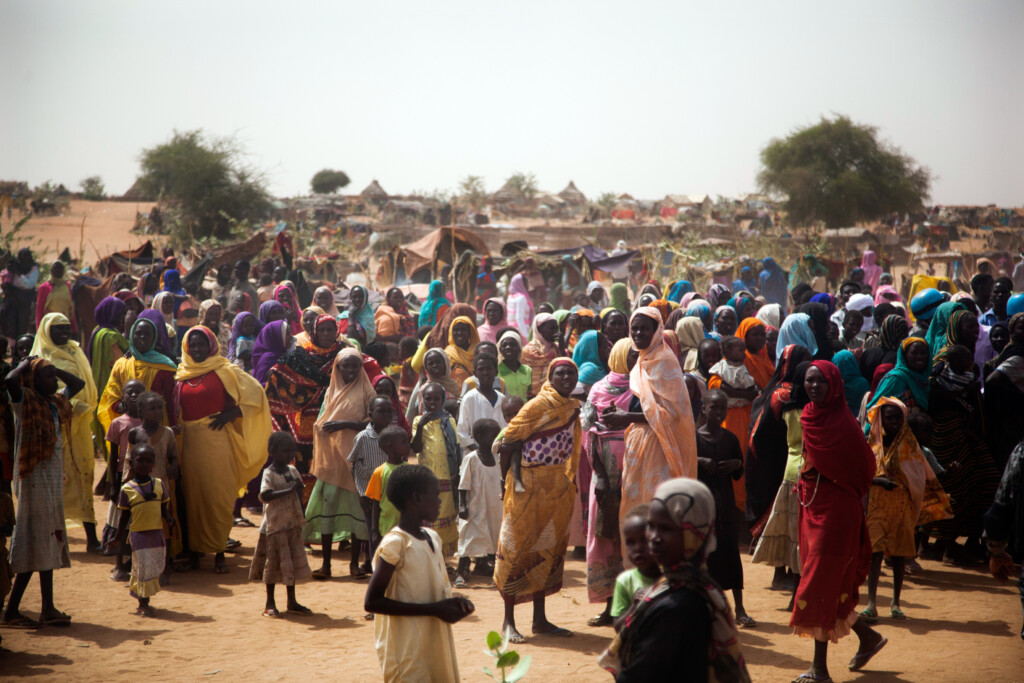Darfur activists reject ‘genocidal’ RSF-backed parallel government

Displaced people in Zamzam camp in El Fasher, North Darfur (File photo: Albert González Farran / UNAMID)
Civil society organisation, Darfur Union UK condemned the formation of a new “founding government” announced by the Sudan Founding Alliance (TASIS), labelling it a “genocidal alliance” and an attempt to “whitewash crimes against humanity”.
In a statement released yesterday, the organisation said: “This announcement is not a step toward peace, it is a propaganda exercise designed to whitewash crimes against humanity, disguise ethnic cleansing as governance, and manipulate the international community into legitimising a militia-led criminal enterprise.”
“We view this council as nothing more than a genocidal alliance of warlords, opportunists, and foreign proxies,” the Darfur Union stated, describing its formation as “an insult to every victim who has suffered under RSF violence.”
“There can be no peace without justice,” the Union added. “There can be no future for Sudan that includes the RSF or any of its affiliates.”
Reaffirming its commitment to a civilian-led, democratic Sudan, the Darfur Union called on the international community “to stand with the victims, not the perpetrators, of war and atrocity,” warning that “history will remember who stood against genocide, and who attempted to dress it in the language of peace.”
Foreign ministry denounces parallel government
The Sudanese Ministry of Foreign Affairs echoed this rejection, calling on regional governments, international organisations, and NGOs to denounce the announcement and refrain from recognising what it described as an “illegal organisation.”
In their statement, the ministry said: “Dealing with this announcement in any way is an infringement on the Government of Sudan and its sovereignty over all its territory and represents a flagrant violation of the rights and capabilities of the Sudanese people.”
The newly formed parallel government led by Tasees and announced in Nyala, the capital of South Darfur, includes the paramilitary Rapid Support Forces (RSF) and the SPLM-North led by Abdelaziz El Hilu, named RSF Commander Mohamed ‘Hemedti’ Dagalo as president of a 15-member Presidential Council. El Hilu was appointed vice president, and former Sovereign Council member Mohamed Hassan El Tawashi was named Prime Minister. Eight governors were also appointed across Sudan’s regions.
The ministry also accused Kenya of enabling the initial controversial RSF meetings in Nairobi that took place earlier this year, in preparation for the announcement, describing this as “a clear violation of Sudan’s sovereignty,” and a breach of the UN, AU, and IGAD charters that support Sudan’s unity.
Calling the move a “fictitious government” orchestrated by the RSF, the ministry added: “The announcement of the Rapid Support Forces of its government through social media pages indicates its defeat in front of the armed forces.”
It further asserted that civilian participation in the coalition “reveals the true face of those alliances” and demonstrates collusion with the RSF in its armed power grab on 15 April 2023.
SAF and political blocs react
Sudan’s Armed Forces spokesperson, Brig Gen Nabil Abdullah, launched a fierce condemnation on the coalition, stating: “This government is a desperate attempt to legitimise their project and pass the agenda of those who support them from abroad.”
He dismissed the initiative as “an attempt to deceive even their partners” and described the RSF’s ambitions as a “racist project.”
The League of Arab States strongly condemned the move, calling it “a blatant violation of the will of the people and an attempt to impose a fait accompli with weapons.” It warned that the formation of parallel governments “undermines the State” and could lead to Sudan being divided into rival cantons, jeopardising regional stability.
The League called on Sudanese factions to halt unilateral actions, comply with UN Security Council Resolution 2736—which calls for an end to the siege on El Fasher—and honour the 2023 Jeddah Agreement on civilian protection.
Forces for Freedom and Change-Democratic Bloc branded the founding government “constitutionally, politically and morally invalid,” calling it “a front” for justifying rebellion and covering up crimes against humanity. The bloc reiterated that the only legitimate government is one recognised by the people and the international community.
The Sudanese Revolutionary Awakening Council dismissed the move as “a miserable attempt” by the RSF to pressure the government after failing to seize power militarily.
In contrast, the Free Lions Party welcomed the new government, calling it “the embodiment of the aspirations of the Sudanese people” and “the beginning of a new era that promises security, accountability and transparency.” Its statement claimed the government “aims to serve the people, not control them.”
The Sudan Liberation Movement faction known as SLM-Tambour, led by armed movement leader and Democratic Bloc member Mustafa Tambour, criticised the council as a “fake advocate of neutrality,” placing it in alliance with what he termed “the Rapid Support Militia, which is nearing the end.”
The Sudanese Group for the Defence of Rights and Freedoms warned that the parallel government violates the founding principles of the Sudanese state established in 1955. It expressed concern the move could reignite partition projects and called for legal dialogue on constitutional legitimacy.











 and then
and then